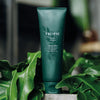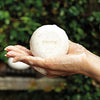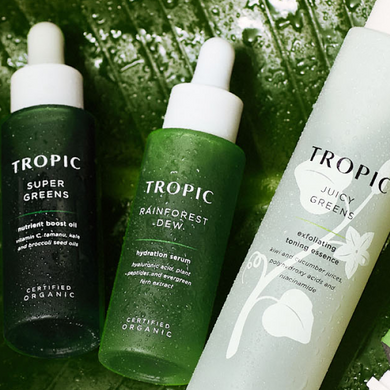Rosie Green (@lifesrosie) is a decorated beauty journalism OG with milestone medals adorning the cloak of her career, but what happens when your steady march through motherhood, marriage and home-making meets a roadblock as your 26 year relationship starts crumbling before your eyes?
Well, valiant as ever, Rosie Green has turned the rubble of her relationship into a remarkable support tool for women who share in her experience. With her thick skin pricked and torn by the sharp edges of heartache, she knew she had to help others like her to love themselves before anyone else.
As I was chatting to her for this interview, Rosie’s exuberance resonated through the phone line, and it was hard to imagine that life hadn’t always been a series of smooth and seamless interactions for this charming, warm woman. Although I was keeping her from seeing friends, she was generous with her time and her energy as we worked through her life’s twists and turns, from beauty to break ups to how she’s bolstering her readers with empowering words.
Ever since she was little, Rosie was enchanted by magazines. Fashion writing was her first crush and she wasn’t afraid to let everyone know it. Inspired by the cult classics Elle and Vogue as a teenager, she endeavoured to make her own magazines and eventually won a Vogue creative writing competition – unlike most of our teen crushes, Rosie’s love of magazine journalism evidently wasn’t unrequited. Through blood, sweat and years of experience, Rosie nabbed herself the title of Beauty Director at Elle magazine, before joining Red as Beauty Editor-At-Large and – perhaps most memorably – author of their wildly popular Life’s Rosie column.
“Beauty became my thing over fashion,” Rosie tells me. “I really enjoyed the idea that a licking of lipstick could pick you up when feeling glum, especially if you couldn’t afford the expensive handbags in the fashion edits. I guess I’ve always woven that idea of empowerment into all of my writing.”
“I started Life’s Rosie as a depiction of this sort of perfectly imperfect relationship when I was still with my husband, and it ended up being as real as possible – I shared the hangryness-fuelled arguments and the blissful bouts of laughter with the world, and mainly tried to normalise the daily realities of marriage and family life, from sexy moments to offensive snoring habits!”
“I tried to add humour to the seemingly mundane and I think people liked it because it resonated with the nuances of relatively normal family life. Then, this traditional set up imploded when my husband left and the marriage began to break down. We had been together since university and the whole ‘perfectly imperfect’ thing became perfectly awful. I sort of found myself husbandless and jobless, which isn’t the easiest of positions to be in.”
Rosie had recently left Red and had to approach her old Editor to explain her situation and essentially ask for her job back. While telling me about this fairly bleak period in her life, she never fails to pause for me to make my notes and ensure that we’re on the right track, and I realise quite how dedicated she is to making those around her happy and comfortable. So, I ask Rosie if she received the support that she would herself undoubtedly give a friend who’d been in a similar position.

“Well, when I approached my old Editor I asked to write about what had happened,” Rosie explains. “I felt that I owed it to people to be honest and thought it would be disingenuous to ignore it. I was completely overwhelmed by the response to it from people who had read the column. There was a complete outpouring of empathy and support, which I think was as a result of the fact that people don’t often talk about break ups candidly. Discussing it made me feel better and was clearly helping others to process the trauma that comes with such debilitating heartbreak.”
“Also, if you’re alluding to the reaction from my friends to my situation, well I think that kind of thing really shows you how strong your support network is. Almost every day there would be some kind of foiled, fragrant parcel of food on my doorstep. They’d help me with childcare and invite us on their holidays – I even had a friend who came with me to lawyers meetings to make notes, as I’d be too traumatised by what was being said to take anything in.”
“The most important thing you can do when trying to be a friend to someone going through something awful is simply to say ‘don’t worry, I’ll just be here for you unconditionally.’ It’s the little things like that that make such a big difference to how you feel. Nothing compares to that crash mat of support in times of trauma and the love that echoes through the walls of a friendship really can be just as loud and fulfilling as the love of a partner if you let it.”
After we digress a little about the miraculous mental health benefits of their new family puppy, I wonder if Rosie finds it strange being the interviewee after all of her journalistic experience, and whether she’s always been so comfortable talking about her pain. She tells me it’s nice to sit on the other side of the questions for a change, and that sharing experiences and helping others through her Instagram is cathartic for her, but I want to know exactly what she hopes to provide her followers that she felt was missing for her when she was initially going through her divorce.
“I just feel that there’s something amazingly healing about recognising a shared experience,” she tells me. “I’m writing a book which is part manual and part memoir. It’s intended to connect with people about the practical and the emotional side of such a situation. There are issues that you’d never had to think about that are suddenly snowing you in and without your partner to help you through them, it can feel like you’re being crushed under the weight of all of this new stress.”
“For example, you may need a mediator or a lawyer. Who do you go to when you’re in need of financial support or advice? All this horrendously tedious and time-consuming admin is then also wrapped up in a layer of pain – every tie that’s broken between you and that person feels like a fresh wound because of how it symbolises their departure.”
“When you have to sort out your joint account, nobody warns you how agonising something as trivial as that can really be. I guess I want to help to equip people with the knowledge and reassurance that things will get better – being prepared for the pain of the boring stuff and learning not to catastrophize are two of the most valuable lessons that I wish I’d learnt sooner.”

While Rosie seems happy enough to chat openly with me about her experience, there are always times in our lives when we struggle to ask for help. I ask her how important she thinks admitting to others that you need to lean on them can be to the healing process.
“Everyone gets their energy from different things, but for me it was absolutely fundamental,” Rosie explains. “So many people stepped up, which is usually the case if you’re brave enough to share your problems. On social media I now have all of these followers, yet I’ve had so little negativity and I truly think that’s because people respond to vulnerability.”
“Maya Angelou once said that ‘the quality of strength lined with tenderness is an unbeatable combination’ and I feel like that applies to most scenarios. Be strong but be vulnerable. No one can help you if they don’t know.”
As the conversation ebbs and flows through the tides of Rosie’s life, I want to ask her about what all this has taught her about her role as a mother, and whether she now feels better equipped to deal with the changing landscape of family life, no matter what challenge appears on the horizon.
“I definitely think with co-parenting there’s an element of the fact that two people are trying to make these rules which means that you’re both – at the very least – compromising on what you think about bringing up children. Now that there are three of us it’s a relatively gentle, (mostly) calm environment in our house.”
“From the TV that we watch to the food that we eat, we have more room to lean into our mutual interests as mother and children. For instance, my daughter wanted to be vegetarian, and now we eat in a different way because we can – there’s no one expecting meat and two veg at the end of the day.”
“In terms of adapting to change, human brains really like certainty. I truly thought my ex was totally solid, but I’ve learnt that the only person you can really rely on is yourself (or maybe your dog). I was so strong in lots of ways, but my marriage was my Achilles’ heel – now I’ve survived the proverbial poisoned arrow and it didn’t lead to my complete demise, I feel so much stronger. I’m also beginning to realise what’s really important in life, and that’s pretty invaluable.”
As we start winding down from some fairly serious content, knowing that we’ve talked about how everyone else has patched together a fuller, more resilient Rosie, I’m keen to know how she’s smoothed her own rough edges. How has this strikingly caring, modest, magnanimous mother of two given herself the love and attention required to feel full again?
“A makeover is a cliché break up response for a reason – it’s hard to beat the power of a red lip when it comes to oozing confidence. There’s always been so much negative press from the patriarchy that beauty is superficial, but for me it was such a genuine double whammy of distraction. I like feeling beautiful for myself, but also think if I present a powerful image to the outside world then it galvanises my strength – if the exterior looks good then you do generally tend to manifest that positivity inside.”
“Even without makeup, soft blankets, nice food and lovely creams feel like that too – it’s just nourishing yourself with an appropriate level of respect. If you can do those things for you first and foremost, you’ll have front row seats to watch your new-found fulfilment patching in all those once tender gaps.”
Interview by Florence Reeves-White

 Skincare
Skincare
 Gifts
Gifts
 Men's
Men's
 Bestsellers
Bestsellers
 Body Care
Body Care
 Sun Care
Sun Care
 Makeup
Makeup
 Mama & Baby
Mama & Baby
 Hair Care
Hair Care

